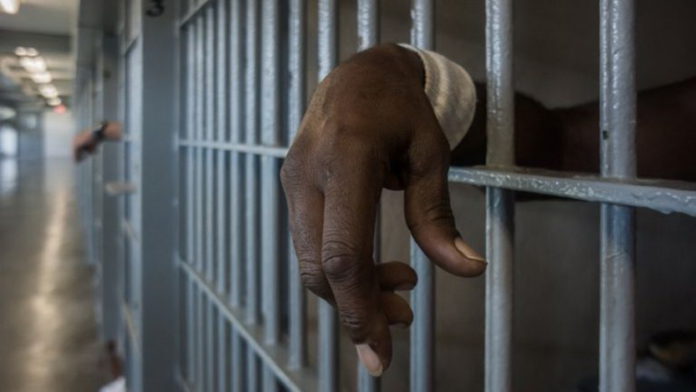Members of the public have been urged to respect the restrictions imposed by President Akufo-Addo as a breach of the directive may result in a 14-year jail term.
This follows the coming into force of the lockdown announced as part of measures to prevent the spread of the novel coronavirus.
The Imposition of Restriction Act passed by parliament slaps a 1000 to 5000 penalty-unit fine on those who flout the law which translates into a GHS12,000 to GHS60,000 respectively.
Ranking Member on the Constitutional, Legal and Parliamentary Affairs Committee of Parliament, Inusah Fuseini explains that in default, you could spend up to 14 years in jail.
“Failure to pay the fine will lead to incarceration. The maximum for a fine of 60,000 is about 14 years,” he said.
The government has deployed security agencies across parts of the country to ensure the adherence to new measures to contain the coronavirus pandemic.
ALSO READ:
The personnel are expected to, over the next two weeks, enforce the President’s directive in Accra, Tema, Kumasi and parts of the Central region.
But Mr Fuseini, who is also Tamale Central MP believes it is unreasonable to jail someone for over 10 years for defaulting restrictions concerning a virus that may not be around in a year’s time.
“…that is too harsh… I don’t think the coronavirus will be around for one year. So why will a person who breaches a measure intended to prevent the spread of the disease, go to jail for 14 or so years.”
He also encouraged judges to dwell more on the fines with regards to the sanctions as part of the punishment for persons who are caught by the law adding that “going to jail for more than 10 years is for felonious offenses.”
“Even though the virus is quite serious, I don’t think a breach of an Executive Instrument will bring that offense in the category of a felony,” he told parliamentary correspondent Joseph Opoku Gakpo on Monday.
Ghana’s confirmed COVID-19 cases stand at 152 according to the Ghana Health Service.

